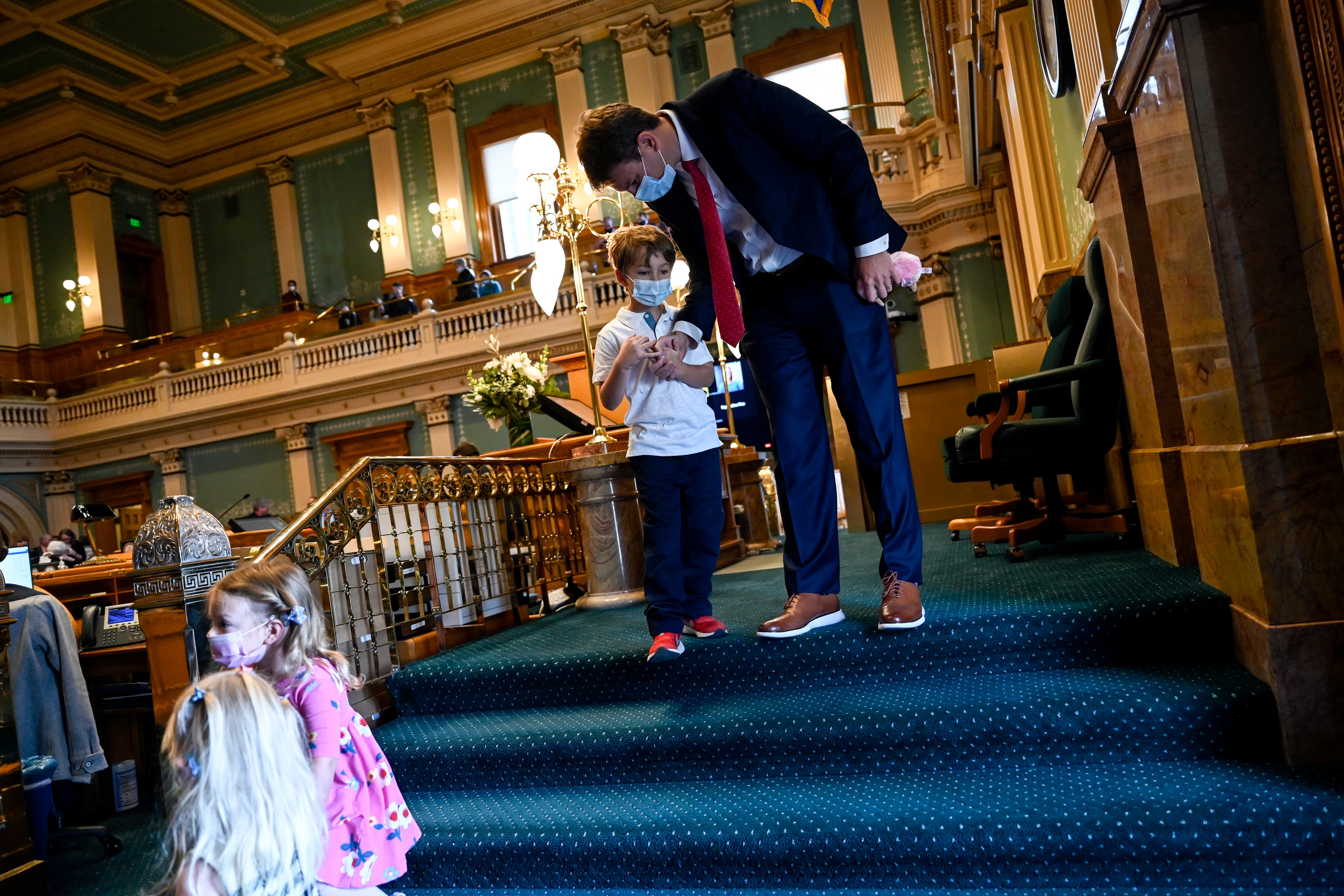The vision for a state early childhood agency and a free preschool program open to all Colorado 4-year-olds took a step closer to reality Thursday.
The House Education Committee amended and passed a 485-page bill outlining key elements of the new agency and preschool program in a 7-2 vote. The legislation will now go to the House Appropriations Committee.
The new department will launch this spring. The universal preschool program, which will be largely funded with a nicotine tax, will roll out in the summer of 2023. The twin efforts, which have been championed by Gov. Jared Polis and many early childhood advocates, could reshape Colorado’s early childhood landscape for decades to come.
A long line of speakers testified at Wednesday’s hearing — the first stop on the bill’s legislative journey. Most expressed support for the new agency and the universal preschool program, though some worried about provisions that could harm county governments, school districts, or rural communities.
Several voiced concerns about the plan to give the department’s executive director rule-making authority, worrying it puts too much power in one person’s hands.
Scott James, chair of the Weld County Board of Commissioners, asked, “Why do we have a czar per se?” He added, “It’s simply not good governance.”
Under the bill, the department’s director would have to consult with an advisory committee before setting rules, but the committee’s recommendations would not be binding.
In response to concerns from James and others, the House Education Committee adopted an amendment requiring the early childhood department’s director to explain in writing any decision that goes against the committee’s recommendation.
Another amendment, proposed by Rep. Colin Larson, a Littleton Republican, would create a pilot program to allow universal preschool to include online learning programs or certain kinds of home visiting programs to accommodate families who can’t get their child to an on-site preschool program or want an option they can do at home. Speaker of the House Alec Garnett, a Denver Democrat and one of the bill’s sponsors, endorsed the amendment, and it was adopted by the committee.
In her closing remarks, Rep. Emily Sirota, a Denver Democrat and the bill’s prime sponsor, acknowledged that the bill still needs fine-tuning, but said great progress has been made on an ambitious effort.
“My heart is just bursting right now,” she said. “We’re going to be an example, I think, for the rest of the country about how to do this.”
Here are some key provisions of the bill.
- Transfers more than a dozen programs from the Department of Human Services and the Department of Education to the new early childhood department, effective July 1.
- Transfers authority over state-funded preschool from the Department of Education to the new early childhood department, effective July 2023.
- Provides 10 hours of tuition-free preschool to Colorado children, with any additional preschool proceeds allocated to provide additional preschool services to children from low-income families or with other risk factors.
- Gives the executive director of the new department the authority to make rules, in consultation with a 15-member advisory committee.
- Establishes the role of “local coordinating organizations” — school districts, non-profits, and other groups charged with administering universal preschool in local communities.
- Pledges to provide universal preschool options in various settings, such as public schools, private centers, and homes.
- Charges the department with creating a single application for all publicly funded early childhood programs, including universal preschool.
- Calls for an independent evaluation of the department after three years.
Ann Schimke is a senior reporter at Chalkbeat, covering early childhood issues and early literacy. Contact Ann at aschimke@chalkbeat.org.





